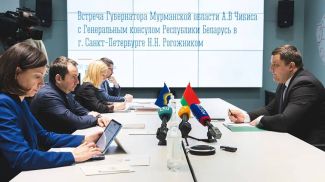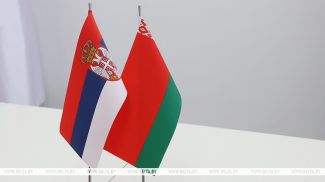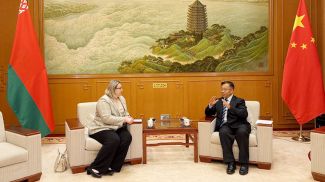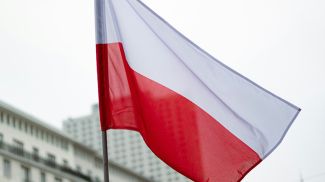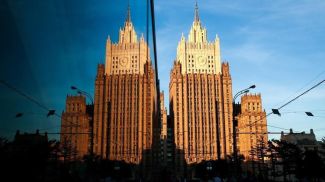MOSCOW, 16 August (BelTA) - Western countries ignored the initiatives of Belarus on digital good-neighborliness, State Secretary of Belarus' Security Council Aleksandr Volfovich said as he addressed the tenth edition of the Moscow Conference on International Security in the Russian capital on 16 August, BelTA has learned.
The information expansion and calculated manipulation of digital technologies is one of the West-created factors contributing to instability, Aleksandr Volfovich said. "Thus, the West seeks to impose its own false narratives about other states, create fake news, propaganda clichés and to demonize individual countries that do not fit the Western idea of the world order," he said. “Through modern information and communication means, they are exerting an undisguised destructive influence on public institutions, provoking social conflicts, acts of civil disobedience and mass riots, replacing traditional values of society and falsifying the historical truth of entire peoples."
"Here it is appropriate to recall that the initiatives of Belarus and Russia to introduce international norms of responsible behavior in cyberspace have been ignored by Western countries," Aleksandr Volfovich emphasized. “The Belarusian proposals repeatedly put forward at international venues by Belarusian President Aleksandr Lukashenko to set up a belt of digital good-neighborliness and digital sovereignty, non-interference in the national cyberspace of every country, have been ignored.”
As an example of constructive cooperation in this area, Aleksandr Volfovich cited the joint work of Belarus and Russia to develop the Union State information security concept. "This document, after its adoption, can serve as a model for conceptual approaches to ensuring information security," he is convinced. "By the way, a number of its provisions have made way to the Russian draft of the UN universal convention on international information security."
More than 700 guests are attending the Moscow security forum, including defense ministers, chiefs of general staff, delegations of the military departments, representatives of the expert community from different states, as well as representatives of international organizations. The conference focuses on global and regional stability, and various aspects of security in Europe, Asia, Africa, the Middle East, and Latin America.





